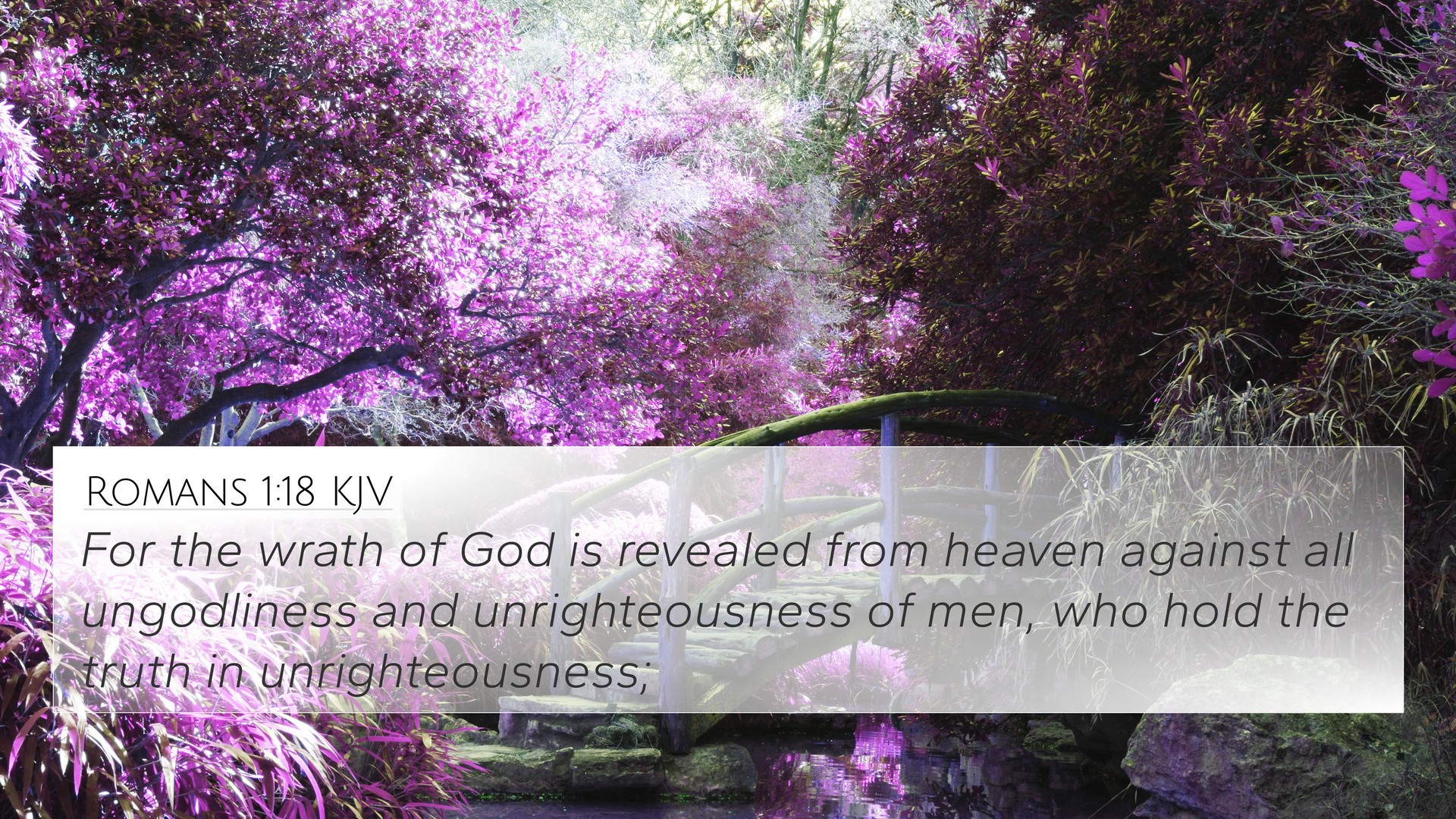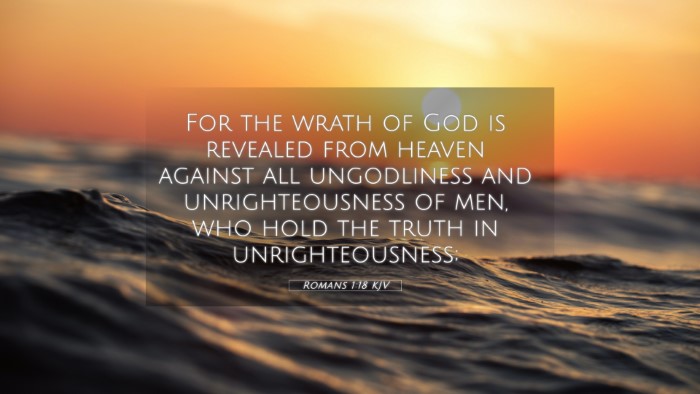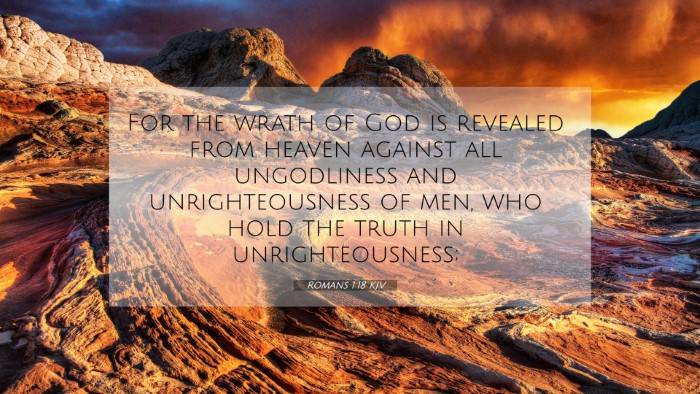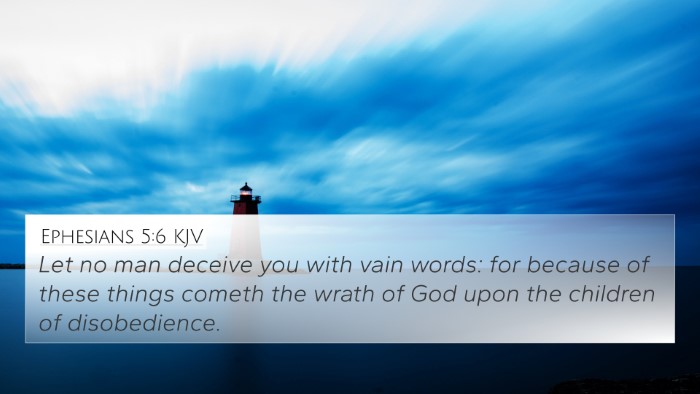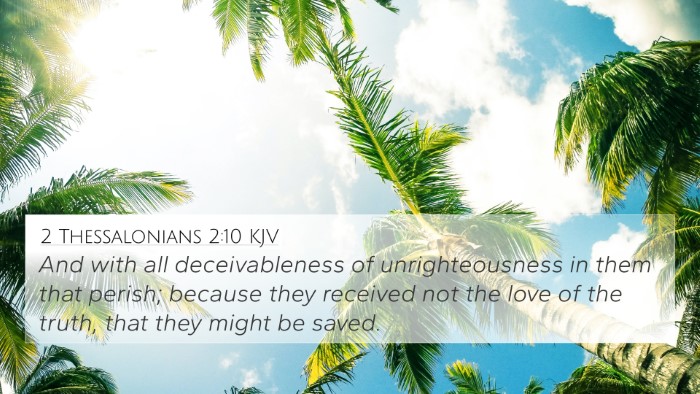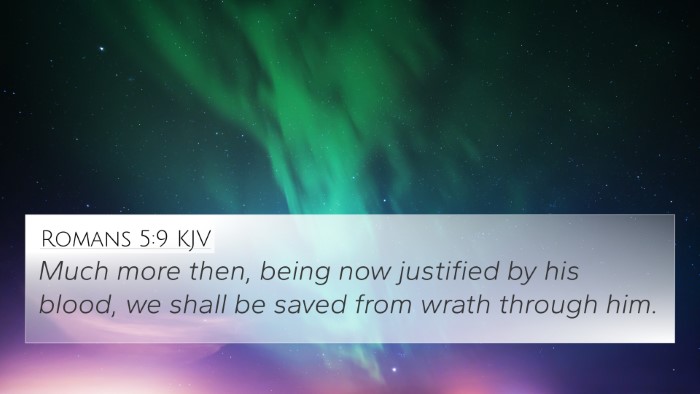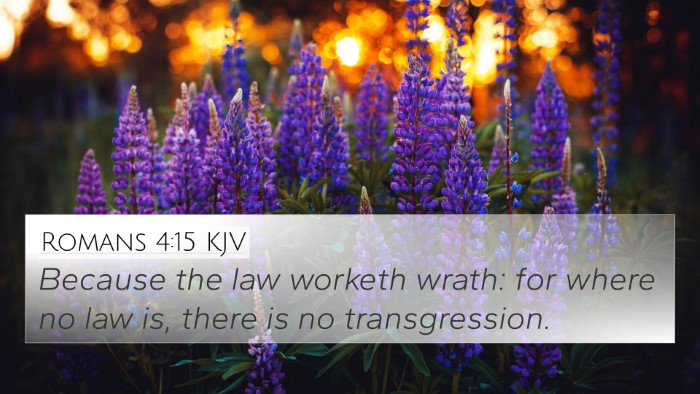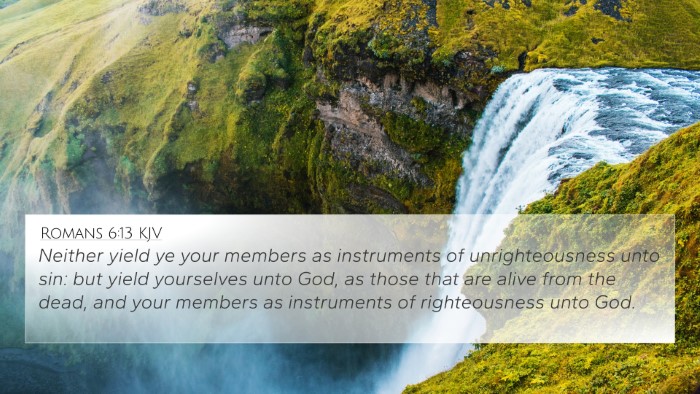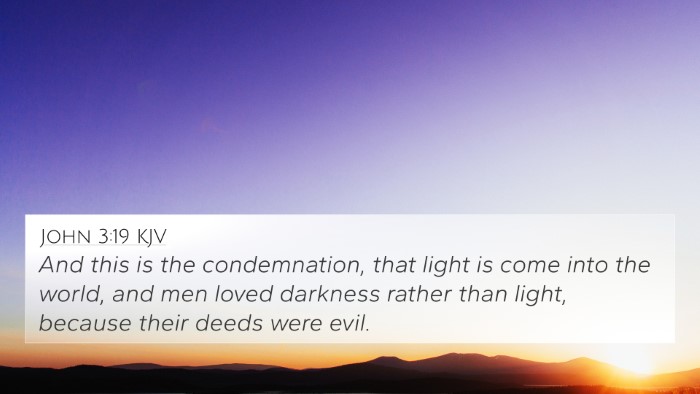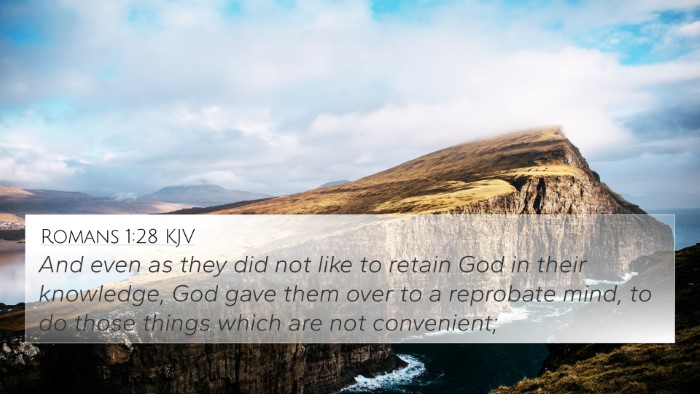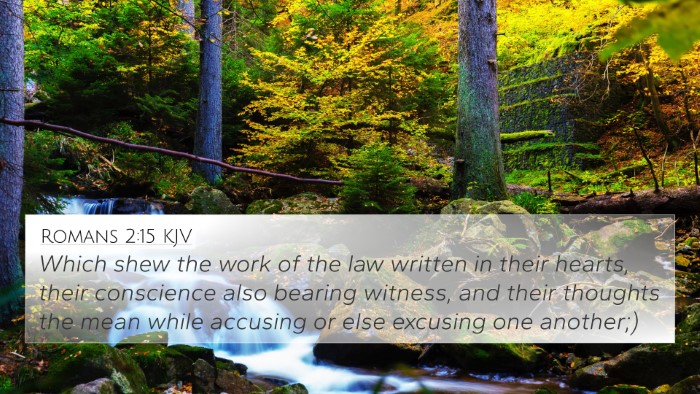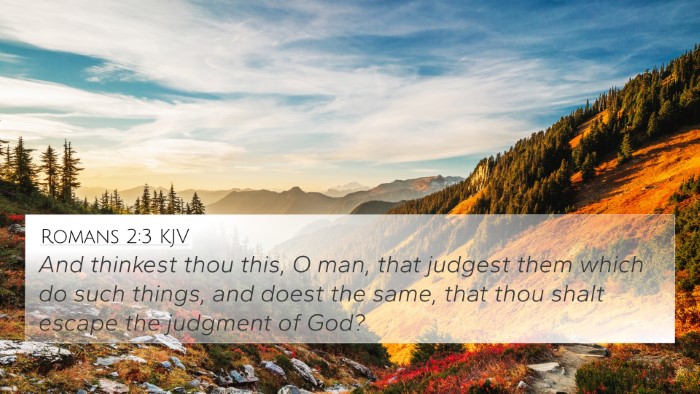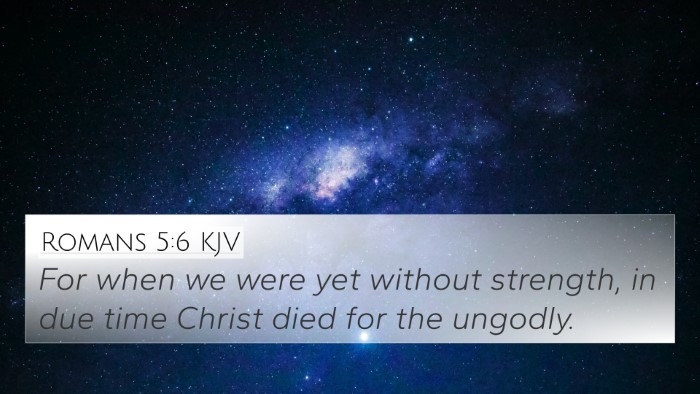Understanding Romans 1:18
Romans 1:18 states:
"For the wrath of God is revealed from heaven against all ungodliness and unrighteousness of men, who hold the truth in unrighteousness."
Overview
This verse serves as a foundational statement in Paul’s epistle to the Romans. It introduces the themes of divine wrath, human sinfulness, and the revelation of God's truth. The significance of Romans 1:18 can be comprehended through a comparative analysis with other biblical texts.
Commentary Insights
Matthew Henry's Commentary
Henry emphasizes the revelation of God's wrath as a reaction to human ungodliness and unrighteousness. He notes that this wrath is not a capricious response but rather a necessary consequence of divine justice. This reveals God's character—holy, just, and intolerant of sin. The phrase "hold the truth in unrighteousness" highlights how humanity possesses an inherent understanding of God's truth yet chooses to suppress it through immoral actions.
Albert Barnes' Notes
Barnes discusses the necessity of God’s wrath being revealed against sin. He elaborates on the phrase "from heaven," indicating that the judgment is not of human origin but divine. This underscores the seriousness of sin, as Barnes argues that refusal to acknowledge God’s truth leads to the cultivation of unrighteousness. He connects this idea with the consequences laid out throughout Scripture, showing a clear link to the Old Testament teachings on sin and judgment.
Adam Clarke's Commentary
Clarke touches on the concept of 'truth' in this verse, emphasizing that people are aware of God's nature yet remain unrepentant. He points out that "holding the truth" implies actively resisting what they know to be right. Clarke connects the verse's implications to both personal accountability and the overarching narrative of salvation and judgment within Scripture.
Cross-References
Romans 1:18 can be illuminated further by exploring the following cross-references:
- Ephesians 5:6: Discusses the consequences of ungodliness and disobedience.
- John 3:36: Highlights the connection between belief and divine wrath.
- 2 Thessalonians 1:7-9: Speaks of God's retribution against those who do not know Him.
- Psalm 7:11: Affirms God's righteous judgment and wrath against the wicked.
- Hebrews 10:27: Warns of the fearful expectation of judgment for those who reject the truth.
- Romans 2:5-6: Discusses storing up wrath for the day of God's wrath.
- Galatians 6:7: A warning that God is not mocked, as they will reap what they sow.
Thematic Connections
Through a thematic study of Romans 1:18 and its cross-references, we can identify key biblical themes, including:
- The Nature of Sin: A recurring theme throughout both the Old and New Testaments, warning humanity of the consequences of deviating from God's will.
- Divine Justice: God’s consistent response to sin is one of judgment, asserting His holiness and justice.
- Human Accountability: Humanity's responsibility to respond rightly to the truth they possess.
- Redemption vs. Wrath: A contrast between the salvation available through faith and the inevitable judgment for those who reject truth.
Further Study and Reflection
For individuals seeking deeper insight, tools for Bible cross-referencing can enhance understanding. Utilizing a Bible concordance or a cross-reference Bible study guide will aid in identifying the rich connections between texts. Consider reflecting on:
- How do these verses connect with your understanding of God’s nature?
- In what ways do they speak to current cultural issues regarding morality?
- What does this verse teach you about the importance of living in accordance with God's truth?
Conclusion
Romans 1:18 encapsulates critical themes of divine wrath against sin and human accountability to truth. Understanding its implications within the wider biblical narrative enhances one’s spiritual insight. Through careful study and cross-referencing, believers can grasp the depth of God's revelation and design for human conduct.
